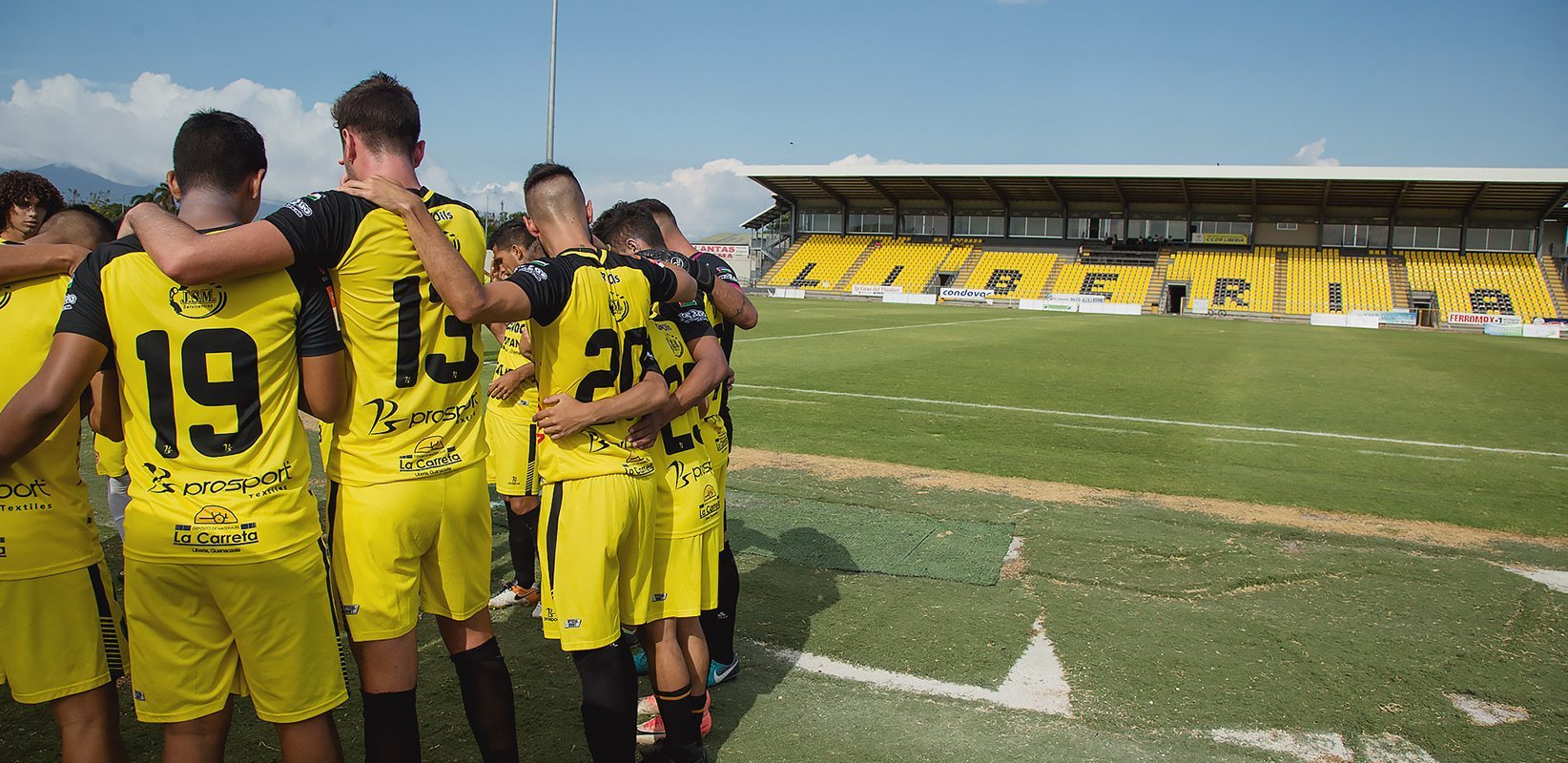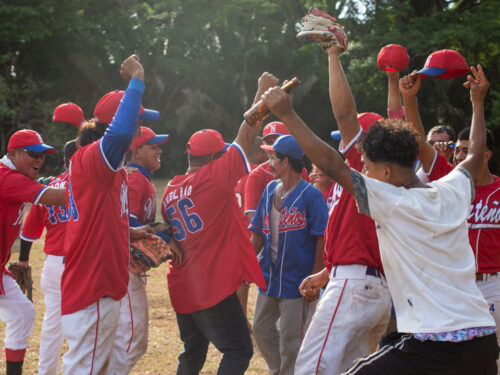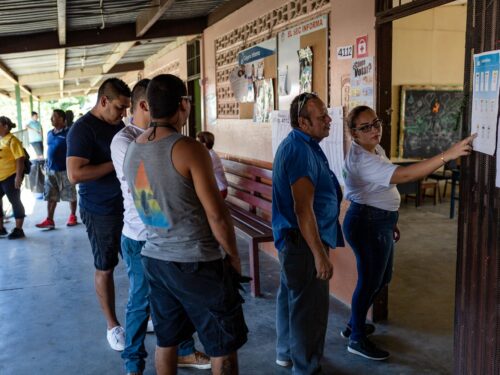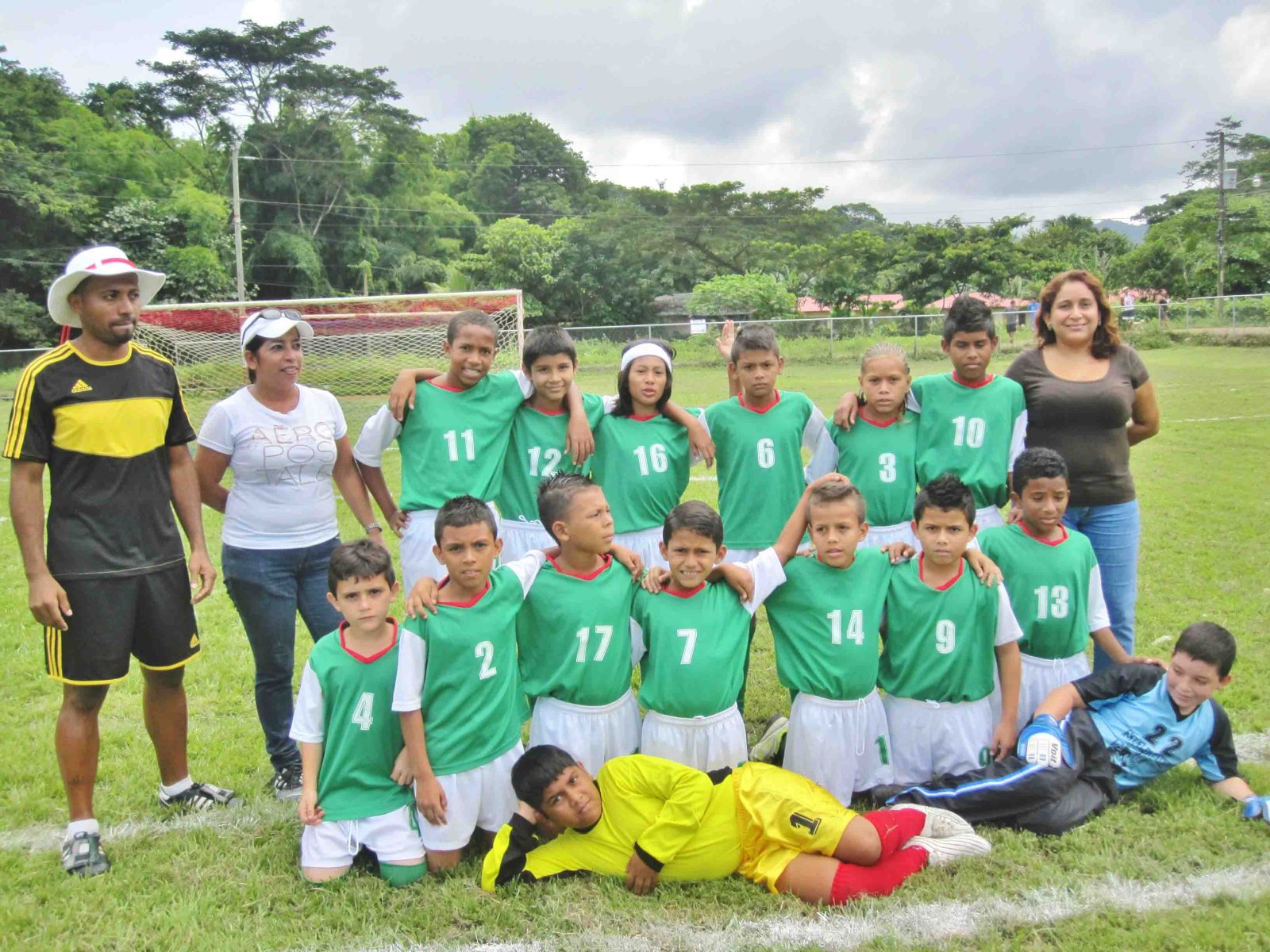
The Municipal Liberia soccer team is facing its biggest financial and sporting crisis since it joined the first division of the national league, with debts that reach ¢230 million ($410,000).
Yesterday’s defeat against Grecia’s team, in addition to the point that Cartago’s team added (which was the direct rival by not descending), took the Liberian team to the second division… again.
How did the team that represents Guanacaste in the big leagues reach this point?
Players and members of the current coaching staff agree that the financial problems began with their rise to division I in 2015, in part because they gave players a pay raise.

The team’s current manager Erick Rodríguez confirms this.
“In division II the team’s payroll was ¢800,000 ($1,415) and in division I it grew to ¢5 million ($8,850) per month and that’s when everything got complicated,” he explained, adding that at that moment they got behind with paying players’ salaries.
Rodríguez added that the administrative department for Municipal Liberia wasn’t prepared for moving into division I and that they made financial decisions without having revenue streams to support them.
One of the stars of the team, Liberian Walter Chévez, explained that the previous administration budgeted revenues based on an assumed attendance at the stadium, an expectation that was never met and that affected the team’s liquidity.

“They budgeted revenue for games as if the stadium were full (3,000 people) but only 500 people showed up,” Chévez.
On top of the financial crisis is the poor performance of the players. They stopped training a month before the start of the current season. According to the team’s current assistant coach, Victor Abelenda, no one contacted the players to tell them to return to training during that month.
“We started the tournament with one week of training. In physical and ability terms, we forecast the worst,” Abelenda complains.
Another key point is that the previous board of directors lost credibility among the players and the coaching staff. They promised that they would pay their salaries on a certain date, but they never came through.
“It’s very difficult to work on the mental aspect with the players when there are so many things behind it,” the assistant coach says. “You can see it in the games when they score a goal on us. There is no mental response to go get that goal back.”
In fact, Liberia is in last place in the 2017-18 accumulative general table, with only 26 points, which makes it the top candidate to be sent down to division II.
Expenses Greater Than Revenues
The team’s previous administrator, Alejandro González, recognized these administrative and planning failures, but he thinks that what hurt the team the most were the operating expenses, which were higher than the revenues, and the lack of sponsors.
“Our operating expenses for bus trips, lodging and food are higher than those for teams in the central valley,” González explained.
For example, González said that playing an away game costs around ¢1 million ($1,770) and the team must play away every 15 days, a challenge that teams like San Jose, Heredia, Cartago and Alajuela don’t have to face since they are close to each other.
In the case of home games, the team makes around ¢2 million ($3,540) per match, which, according to González, is very little when considering the institution’s expenses.
“The sponsors have helped us, but we need more and we haven’t gotten more.”
The Voice of Guanacaste requested in writing the data regarding the revenues and expenses of the Municipal Liberia soccer team from 2015 and 2017, but didn’t receive a response from the board of directors or the administration before the close of this edition.
World Cup Will Reduce Debts
The players and members of the coaching staff recognize that, for now, the new board of directors has come through with paying their salaries, but there are still debts for salaries from months back that haven’t been paid yet.
One piece of good news for Municipal Liberia – and the rest of the teams in division I – is that they will receive a bonus of ¢90 million since the Costa Rica national soccer team qualified for the 2018 World Cup in Russia.
The new board of directors told this newspaper that the money will be used to pay pending debts. The problem is that this money won’t be available until October and it appears to be insufficient, since the debt through February first reached ¢230 million.







Comments